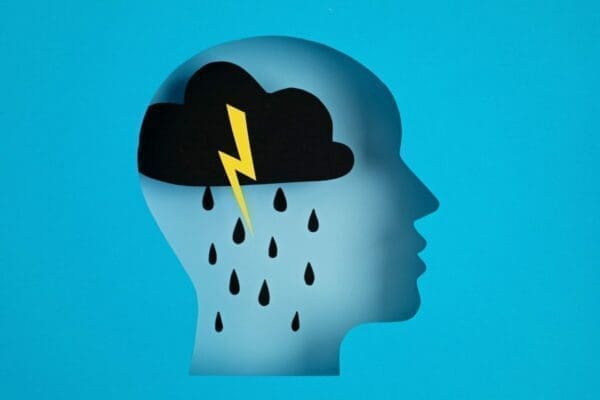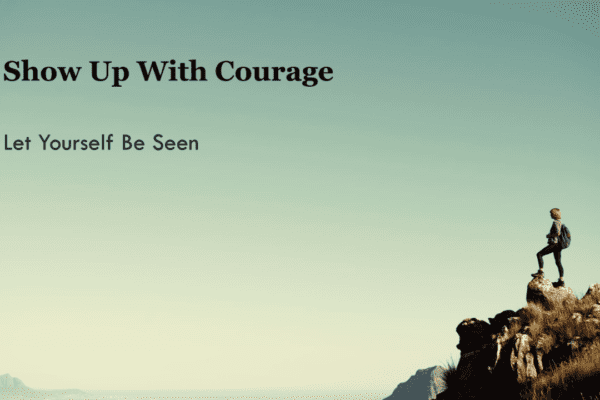Resilience and Wellbeing: The Key to Businesses and People Getting Back on Track
UK office-based working patterns are unpredictable at the moment because some businesses are still home working. Growing numbers of offices are back full-time, while other people are going in odd days. After long months of working remotely, this new stress is taxing our resilience and wellbeing.
We’ve heard those two words a lot during the pandemic. We’ll most likely go on hearing them a lot for the next few years. But do you understand what they mean and how to benefit from them? And do you know how better understanding could help you succeed?
Resilience and Wellbeing Can Come as Easily as Breathing
You can work on resilience and wellbeing and practise mindfulness or meditation, and see changes quite quickly. Join us on our ‘tasting tour’ and pick up some pointers to incorporate in your life. And don’t forget to check out our Top Ten Takeaway Tips at the end!
What Does Resilience Look Like?
Resilience is a quality you can’t pin down. But at its most dramatic it enables people to be knocked down by life and bounce back stronger. Rather than have failure overcome us and drain our resolve, we find ways to rise again.
Recovering and thriving can seem remote possibilities when we hit difficult or traumatic circumstances. But working on our resilience and wellbeing certainly makes us more likely to turn things around and come through.
How is Resilience Linked to Health and Wellbeing?
Change can be stressful and affect our wellbeing and mental health. Resilience helps protect us from various mental health conditions stress brings on, like depression and anxiety.
Also, resilience can help offset factors that increase the risk of mental health conditions, like being bullied or the effects of previous trauma. You can improve your wellbeing, and hence your resilience by mindfulness or meditation and working on self-care.

Sticky Learning ® is 7 times more effective than 1-day training courses. Plus, you will get a Chain of Evidence proving your Return on Investment. Discover soft skills training that changes behaviours long term.

Is Resilience a Skill?
Resilience is a special skill because it is defined by our individual outlook and response. It’s an adaptive mode of thinking, which takes working at. So you can develop it gradually, alongside techniques for improving your initial response to something bad or unwanted.
What are the Three Categories of Resilience?
For leaders and managers, steering an organisation through the pandemic means developing three categories of resilience:
- Personal
- Institutional
- Post-crisis
With so much complexity and uncertainty, resilience and wellbeing are essential in the workplace. They underpin leaders’ and managers’ ability to think with clarity and achieve goals. Whoever we are, these qualities help us make positive decisions that shape our lives.
Wigan Wellbeing and Resilience
If we don’t take our wellbeing seriously, we can find ourselves needing help from social services. Wigan Wellbeing and Resilience supports adults over 16s with wellbeing-related needs. Their website points out that childhood traumas and mental health issues can lead to offending and substance or alcohol misuse. Moreover, the disastrous consequences can include homelessness or prison.

One in six of us will be affected by mental health disorders during our lives. So, we need to recognise the symptoms early and take action. If you experience low wellbeing over a period of time, you’re more likely to develop mental health problems.
Recognising Resilience and Wellbeing in the Workplace
Many businesses talk about building and improving workplace culture and resilience. The best actively support their people’s wellbeing and mental health. A good resilience culture looks like this:
- Employees handle work stress better and develop protective factors.
- They have greater job satisfaction, happiness at work, commitment and engagement.
- Improved self-esteem, sense of control over life events, sense of purpose and better relations between employees.
- Better productivity for the business.
The £33 Billion Question – Just Why are Resilience and Wellbeing in the Workplace so Important?
Before COVID, in October 2017, Deloitte reported that mental health cost employers over £33 billion a year. On the plus side, the report quoted the average return on investment of workplace mental health interventions as over 4:1.
Many UK trade sectors have suffered in the pandemic. But a lot of businesses are better off as a result. In a recent Guardian survey, 88% of organisations made real estate savings in 2020 through remote working. And home working prompted at least one marketing agency to shed its costly London office. It all sounds rosy.
But there’s a downside to remote working. For many people, it means social disconnection, burnout and falling morale. The Bank of England has suggested online working can become a drain on creativity and collaboration. Because we’re social creatures, who need to be with other people.
For young people starting out, the physical workplace is particularly important. It provides valuable opportunities to make friends and get the feel of an organisation. Stuck at home, they miss all this.
Seven Skills of Resilience
You can do a lot to build your personal resilience:
- Cultivate a belief in your ability to cope in difficult situations.
- Stay connected with your sources of support.
- Talk to people about what you’re going through.
- Be helpful to others with their situation: try and make a difference for someone else who’s going through it.
- Activate positive emotions: do what makes you happy and keep your sense of humour.
- Cultivate an attitude of survivorship. A “survivor narrative” is much better for your mental health.
- Seek meaning and purpose: find a sense of meaning in the difficulty you’re facing.
Resilience By Numbers – Positivity Pointers on Parade
With a complex subject like this, it helps to break ideas into lists. Stopping the flow of words allows your brain to pause and take things in.
The 4 Capacities
Businesses need to develop reliable responses to difficult situations. Good preparation contributes to sustainable performance, but primarily it’s down to organisational resilience. This involves four capacities to respond:
- Bounce back.
- Develop ‘workarounds’ to absorb losses and shortages.
- Adapt continuously to changing conditions.
- Deal methodically with problems that arise.
4 Kinds of Resilience
Whether you’re leading or managing a business, or a team member, you need to build your personal resilience:
- Mental resilience: The ability to pay attention and motivate yourself to do difficult things.
- Emotional resilience: The ability to invoke positive emotions when you need them, like optimism.
- Social resilience: The ability to reach out for help when you need it. This also means learning to be someone others want to support and encourage!
- Physical resilience: The ability to face physical challenges. Stress is physically demanding and we have to look after our bodies as well.
4 Pillars of Resilience

On its website, the US Defense Logistics Agency says balancing these four Pillars of Resilience will help strengthen your life. Here are their words:
- Mental: The ability to cope with mental stresses and challenges. Pay attention to your needs and feelings. Our thoughts control our energy.
- Physical: The ability to adopt and sustain healthy behaviours. Regularly exercise and monitor your physical stamina.
- Social: The ability to network. Build and value interpersonal relationships. Strong connections widen our perceptions and grow character.
- Spiritual: The ability to adhere to beliefs, principles or values needed to persevere and prevail in accomplishing missions.
The Defense Logistics Agency serves alongside fighters in forward areas. That’s challenging enough! But they say the pandemic added extra hurdles in 2020, by bringing changes in military operations and safeguarding personnel. Even they were affected.
5 Pillars of Resilience
The Bounceback Project is a medical project in Minnesota that promotes heath through happiness and focusing on the positive. They list 5 pillars:
- Self-awareness
- Mindfulness
- Self-care
- Positive relationships
- Purpose
5 More Pointers: PermaPlus+
The American psychologist Professor Martin Seligman devised a wellbeing framework called PERMA+. Designed to be easily memorised, these are:
- Positive emotion
- Engagement
- Relationships
- Meaning
- Accomplishments
Widely adopted in Australia, this resource is available online and worth checking out.
The 7 ‘C’s of Resilience
Dr Ken Ginsburg, a paediatrician and human development expert in Philadelphia, has identified seven interrelated components that makeup being resilient:
Competence: The ability to handle stressful situations effectively. Having the skills to face challenges and practising using them.
Confidence: This is rooted in children knowing they have competence.
Connection: Having close ties to friends, family and community helps build strong ties and less likely to seek out alternative destructive behaviours.
Character: Enhancing self-esteem and knowing that you can make “wise” choices towards your values.
Contribution: Experiencing personally contributing to the world teaches you the world’s a better place because you’re in it.
Coping: Children who have coping skills are better prepared to overcome life’s challenges.
Control: When children realise they have control over their decisions and actions, they are more likely to make choices so that they bounce back from life’s challenges.
These have been turned into the basis for various child development projects.
9 Ways to Build Resilience and Wellbeing in the Workplace

The writer Barry Winbolt has come up with these tips:
- Cherish social support and interaction.
- Treat problems as a learning process.
- Avoid making a drama out of a crisis.
- Celebrate your successes.
- Develop realistic life goals.
- Take positive actions in the face of adversity.
- Nurture a positive view of yourself.
- Keep a realistic perspective.
- Practise optimism.
And Finally…
As promised, here are 10 takeaway tips you might find helpful.
As we’ve been saying all through, even if you’re not naturally resilient, don’t worry. You can develop a resilient mindset and attitude by applying yourself. Think about incorporating these tips into your life:
- Learn to relax: develop good sleep patterns. Do some exercise you enjoy. Use physical relaxation techniques like mindfulness or meditation. It’s all deep breathing, anyway.
- Practise thought awareness: think about how you think about things.
- Rewrite your outlook: practise changing the way you think about adverse situations and events.
- Learn from your mistakes: think about how you can grow after a crisis. Re-assess your life.
- Choose how you react: your response is actually up to you.
- Keep perspective: your situation may seem overwhelming but it may not have much of an impact in the long term.
- Set ‘SMART’ goals: specific, measurable, attainable, relevant and time-bound.
- Build your self-confidence.
- Develop strong relationships.
- Be flexible, willing to change.
This concludes our whistle-stop tour of resilience and wellbeing. As you’ll have noticed, there are some consistent themes. You have to take ownership of your situation and see it in perspective.
How Can I Develop Personal Resilience?
One thing you can do is build up your social network. We’re not talking here about ‘likes,’ connections and followers. Find people who genuinely care about you. It’s far easier to develop and maintain resilience if you have a healthy social network. It’s true even if your network is just a few people. If you’re looking to develop your resilience, ask yourself:
- When was the last time you were stressed at work?
- Did someone help you?
- Who was it?
Recognising the people who are helpful and loyal to you is important. But equally, make time and emotional space for others. Be genuinely interested in them: show they can lean on you in hard times too.
Can I Be Trained in Resilience?
You can certainly be trained in mindfulness, as we said. That’s a good starting point. Before the pandemic, poor mental health was the UK’s leading cause of sickness absence. In 2013 it accounted for 70 million sick days a year. Mindfulness training was found to have a clinically significant effect in treating anxiety and depression.
Mindfulness was also found to reduce perceived stress, anger, absentmindedness and physiological symptoms. It improved positive outlook, self-worth, autonomy, motivation and morale. And it’s as easy as breathing in and out.
We Should Do This Stuff in Our Office
It can feel like company wellbeing schemes are where it’s at, when you look on social media. But some of the existing wellbeing boosters are really effective. And you needn’t spends any money for you and your staff to benefit.
Mindfulness training can support organisational resilience by:
- Giving a greater sense of awareness, helping staff understand and be more receptive to responsible self-care.
- Enabling people to recognise signs of stress and respond more effectively.
- Equipping people to recognise and change their habitual reactive thought and behaviour patterns which add to their stress.
- Supporting an open-minded culture, where relationships are fostered and valued.
In the grocery industry, for example, access is free to GroceryAid’s Health and Wellbeing portal. It helps counter ‘presenteeism,’ as in being at work but distracted and underperforming. They even have Woebot, the AI counsellor available 24/7 via an app.
Gimme Five! It’s Doctor’s Orders
The NHS is the UK’s largest provider of wellbeing services. So it would be rude not to include them in our roundup of resilience and wellbeing ‘numbers’:
NHS England’s 5 Steps to Wellbeing

The NHS England website says there is evidence to suggest there are five steps you can take to improve your mental health and wellbeing:
- Connect with other people.
- Be physically active.
- Learn new skills.
- Give back to others: volunteer, give your time.
- Pay attention to the present moment (Mindfulness again).
The NHS website also says, don’t rely on technology or social media to build your relationships. They point out it’s easy to get into the habit of only ever texting, messaging, or emailing people. Clearly, as we come out of the pandemic and we can meet people, this will change. But the habit is so ingrained…
Now you’ve read this, put your phone down for a moment. Think about someone you can talk to about what you’ve just been reading. Don’t keep it to yourself. Share what you know about resilience and wellbeing and help the world!




